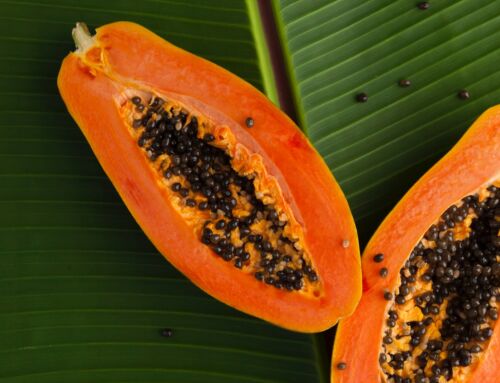It’s itchy, chronic and debilitating — but what natural relief is there for psoriasis sufferers?
Psoriasis is an autoimmune condition that primarily affects the skin. The connection to the immune system was discovered by chance in the late 1970s when scientists noticed the immune suppressant drug cyclosporine can improve the condition.
The primary immune defect appears to be an increase in cell signalling which speeds up the life cycle of skin cells, causing them to build up rapidly on the surface of the skin.
This pile-up of skin has replicated too rapidly (1000 times more than normal) and cannot shed at the same rate, therefore silvery scales accumulate.
So what can you do if you think you may have psoriasis? Our Naturopath Natalie Koshka has identified some common risk factors and natural treatment strategies to manage the condition.
Risk factors for psoriasis
- genetics — specifically the HLA-cw6 gene
- emotional stress or trauma
- leaky gut
- immune system dysfunction or infection
- excessive alcohol consumption, smoking and recreational drugs — may exacerbate psoriasis or make the management of the condition difficult
- nutrient deficiencies — selenium, vitamin D, vitamin A and E
- sunburn, injury, viral infection and certain medications can also make certain types of psoriasis worse.
Common signs and symptoms
- raised skin lesions, deep pink with red borders and silvery surface scales — may be cracked and painful
- pitted, discoloured and possibly thickened fingernails and/or toenails — may be separated from underlying skin
- itching of skin around plaques
- new lesions may appear following injuries to the skin
- sensitivity to friction and sweating.
Natural treatment strategies for psoriasis
There is no one treatment for psoriasis but the good news is there’s a lot you can do yourself to treat psoriasis naturally. These strategies include:
- going gluten-free to reduce inflammation
- eating a diet of fresh fruit, vegetables and lean protein sources such as fish has been shown to be beneficial.
- following a gut-healing protocol to reduce inflammation and leaky gut
- food intolerance testing may also be beneficial and can be done in our clinic.
Specific nutrients and herbal medicine
- Vitamin D — has multiple immune properties, reduces inflammation and prevents the development of autoimmune processes.
- Curcumin — has shown to be effective for psoriasis in reducing inflammation and significantly improving plaque redness, weight and thickness.
- Boswellia — has been shown to decrease inflammation.
- Omega 3 essential fatty acids — shown to offer systemic protection from inflammation.
- Depurative and lymphatic herbs — cleavers and burdock are beneficial in chronic skin disorders.
Natural topical treatments
- bathing daily helps remove scales and calm inflamed skin — add bath oil, Epsom salts or dead sea salts to the water and soak
- swim in seawater as often as possible
- avoid hot water and harsh soaps which can worsen symptoms — use lukewarm water and mild soaps that have added oils and fats
- after bathing apply a heavy, ointment-based moisturiser while the skin is still moist.
Stress management
Stress affects psoriasis and also reduces immune tolerance. I recommend yoga, meditation, reading, exercise and counselling to help manage stress levels.
Exercise
Exercise elevates populations of white blood cells called T regulatory (Tregs). Tregs are important in promoting balance in the immune system. I recommend regular exercise such as a 30 to 45 minute walk, 5 times a week.
If you are suffering with psoriasis and you would like some free advice from our qualified Naturopaths, drop in to the Herb Bar anytime Monday through Friday from 8am – 1pm or Saturday 9am – 1pm. No appointment necessary and a qualified Naturopath will be on hand ready to assist you with free advice, practitioner grade natural supplements and herbal medicines. The Herb Bar is located in reception at Mullen Natural Health Centre, 16 Murray Street Hamilton NSW 2303.

